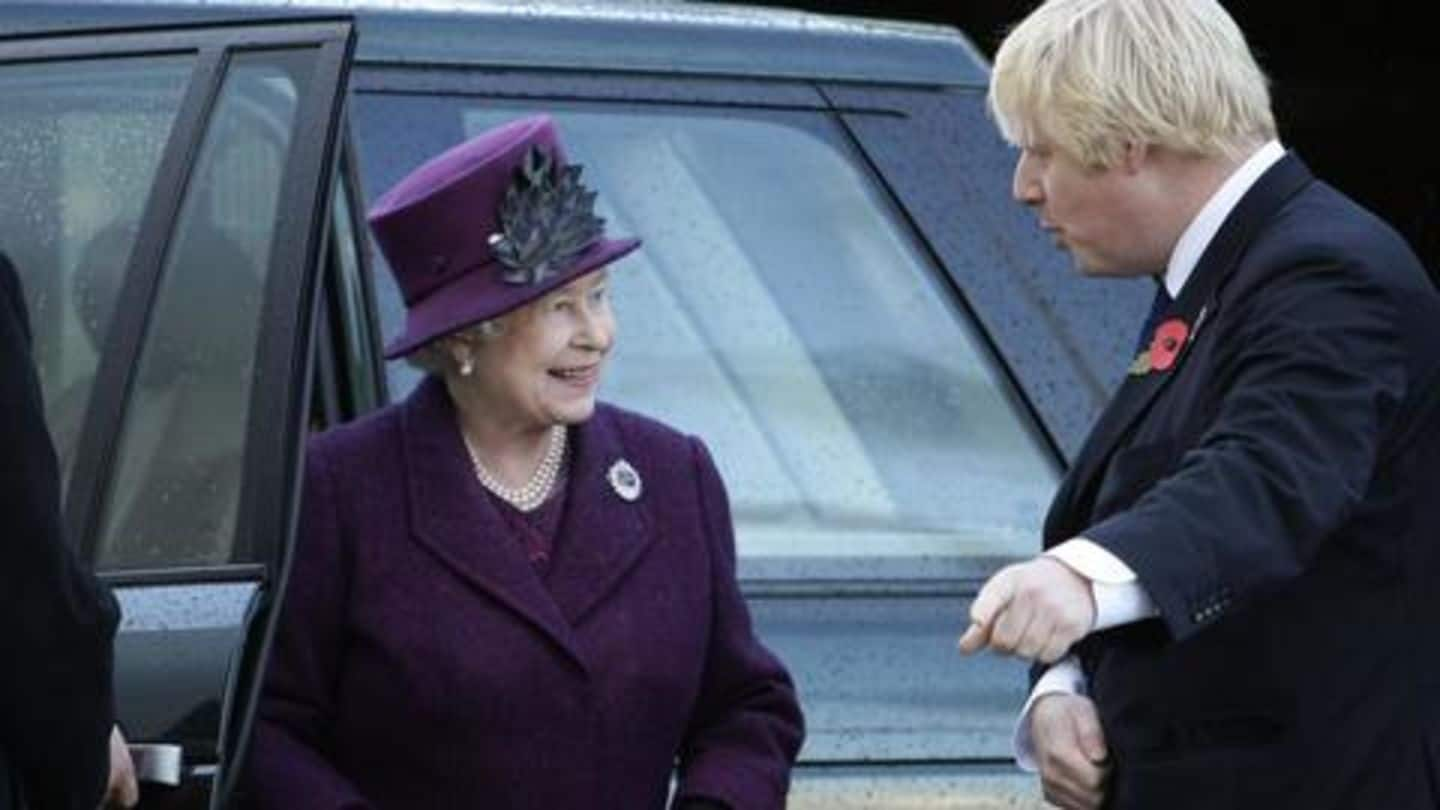
Coronavirus: UK's PM Boris Johnson hospitalized; Queen Elizabeth addresses nation
What's the story
Ten days after testing positive for coronavirus, United Kingdom's Prime Minister Boris Johnson was admitted to a hospital in London, in what was called a "precautionary measure" by a Downing Street spokesperson. He was taken to the hospital on Sunday after symptoms didn't subside. Meanwhile, in a rare televised speech, Queen Elizabeth II told British citizens that they will defeat COVID-19 together.
What happened
Johnson received medical treatment remotely, will get routine tests done
On Friday, a flushed and red-eyed Johnson said he still had a fever but was doing better. Since he tested positive, he had been receiving medical treatment remotely. BBC said he might stay in the hospital overnight and would undertake routine tests. "On the advice of his doctor, the prime minister has tonight been admitted to hospital for tests," a Downing Street spokesperson said.
Leader
Johnson will continue to lead the government
Officials stressed that Johnson would continue to lead the government. However, if his condition deteriorates, first foreign secretary Dominic Raab will take charge. On Monday, Raab will head a meeting of the C-19 committee, formed to deal with the pandemic. Early last week, Johnson's aides said he was expected to come out of quarantine in the next couple of days, but that didn't happen.
Reports
Reports said UK wasn't truthful about Johnson's condition
According to The Guardian, Johnson was more ill than what his officials were letting on and it was said that doctors were worried about his breathing. But denying this, his office said there were no plans to get him admitted. When senior politician Matt Hancock was asked about the PM's health on Sunday, he replied that the latter was in "good spirits".
Tests
Johnson's vital signs will be judged
Dr. Rupert Beale, who heads the cell biology of infection laboratory at the Francis Crick Institute in London, said doctors will monitor "vital signs such as oxygen saturation". "They will also check blood tests to see what the immune response to the virus looks like and to assess liver and kidney function. They will perform an electrocardiogram to check the heart," he added.
Queen's address
In rare address, Queen told Britons that pandemic brought grief
The latest development of Johnson's health unnerved the nation. During these grim times, the Queen addressed the nation, breaking from the tradition of speaking only on Christmas or when a new Parliament is elected. In a pre-recorded video, shot at Windsor Castle, she noted that the pandemic has brought "grief to some, financial difficulties to many, and enormous changes to the daily lives".
What she said
Coronavirus pandemic reminded Queen of World War II
Speaking from a personal context, the Queen said this address reminded her of the address she gave during World War II. "It reminds me of the very first broadcast I made, in 1940, helped by my sister. We, as children, spoke from here at Windsor to children who had been evacuated from their homes and sent away for their own safety," she went on.
Quote
Hoping to spread optimism, Queen said "we will succeed"
"This time we join with all nations across the globe in a common endeavor, using the great advances of science and our instinctive compassion to heal. We will succeed -- and that success will belong to every one of us," the Queen said.
Twitter Post
Her speech can be viewed here
Her Majesty The Queen addresses the UK and the Commonwealth in a special broadcast recorded at Windsor Castle. pic.twitter.com/HjO1uiV1Tm
— The Royal Family (@RoyalFamily) April 5, 2020
Details
Meanwhile, Buckingham Palace is ensuring the Queen remains safe
Now, the Queen turns 94 this month and Buckingham Palace has taken extraordinary measures to protect her from coronavirus, which has proved to be more deadly for the elderly. Her speech was recorded in a large room, where only one camera operator, who wore gloves and a mask was present, while the rest of the crew remained in another room.
Fears
Prince Charles met his mother last month
To recall, the Queen's son and the heir apparent, Prince Charles, tested positive for coronavirus last month. He met her on March 12. The following day, his medical team concluded that he could have contracted the infection. Meanwhile, Britain has 47,806 active coronavirus cases and 4,934 people have died. The country is, sadly, following the trajectory of other European nations.